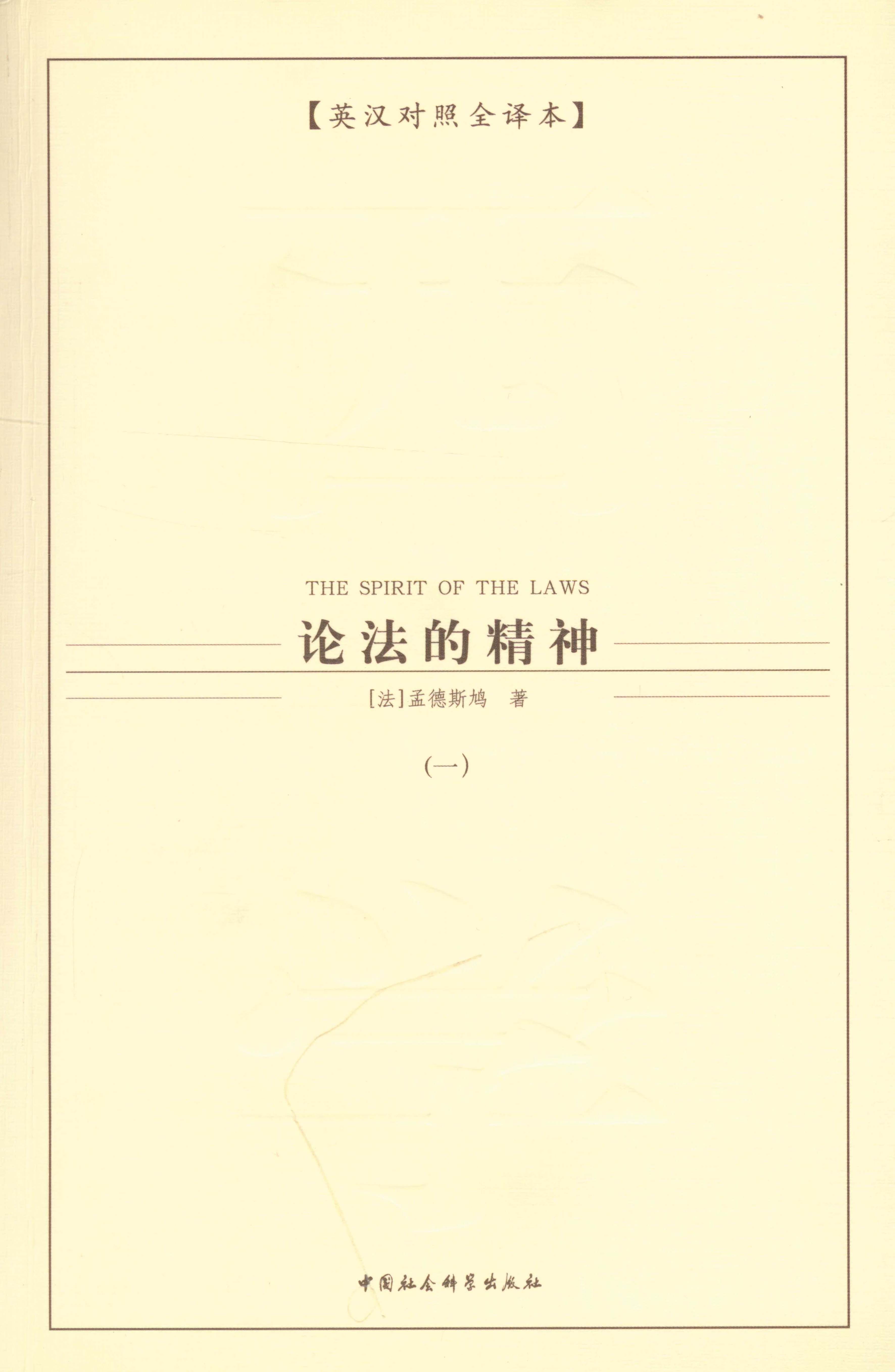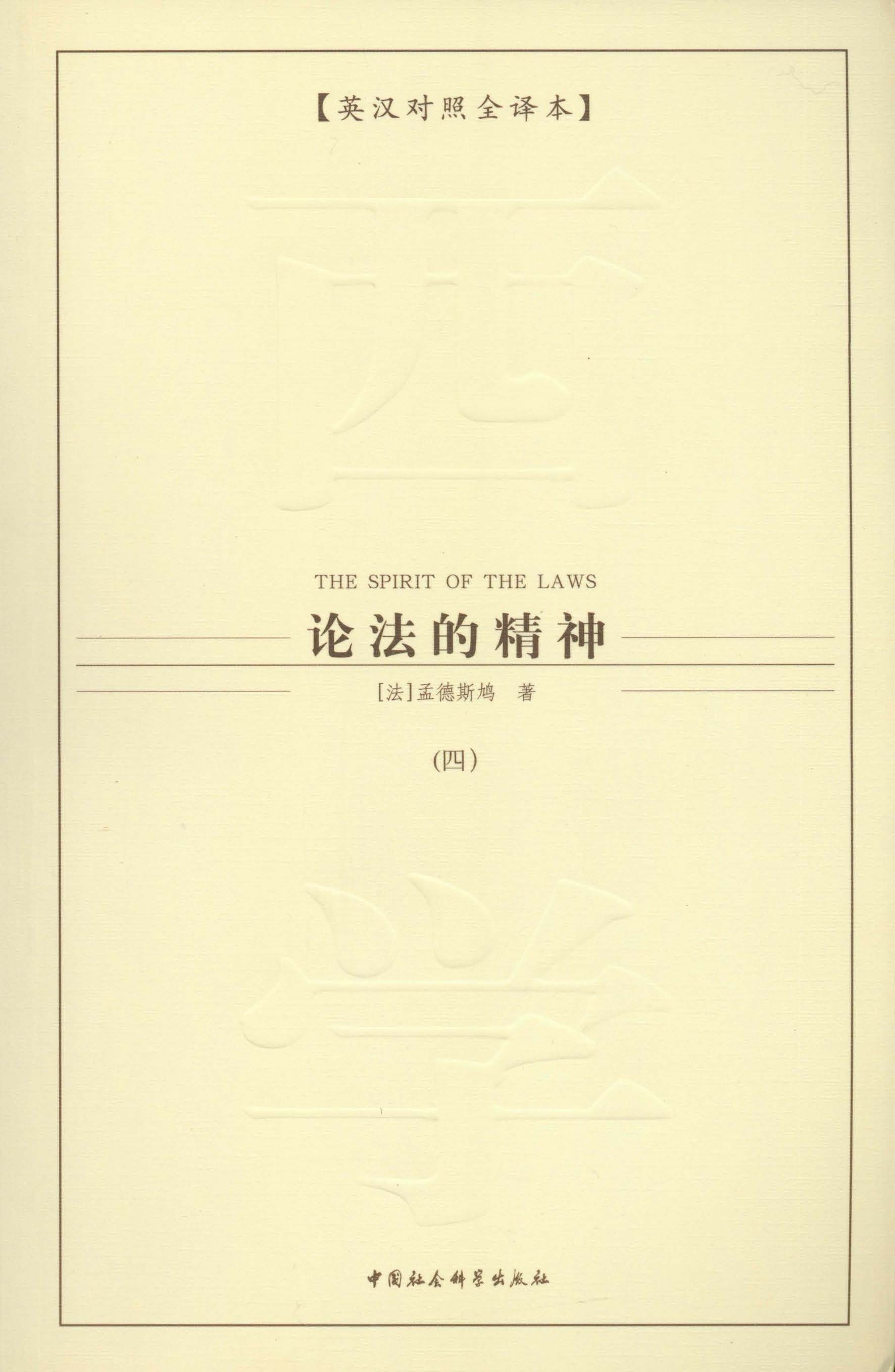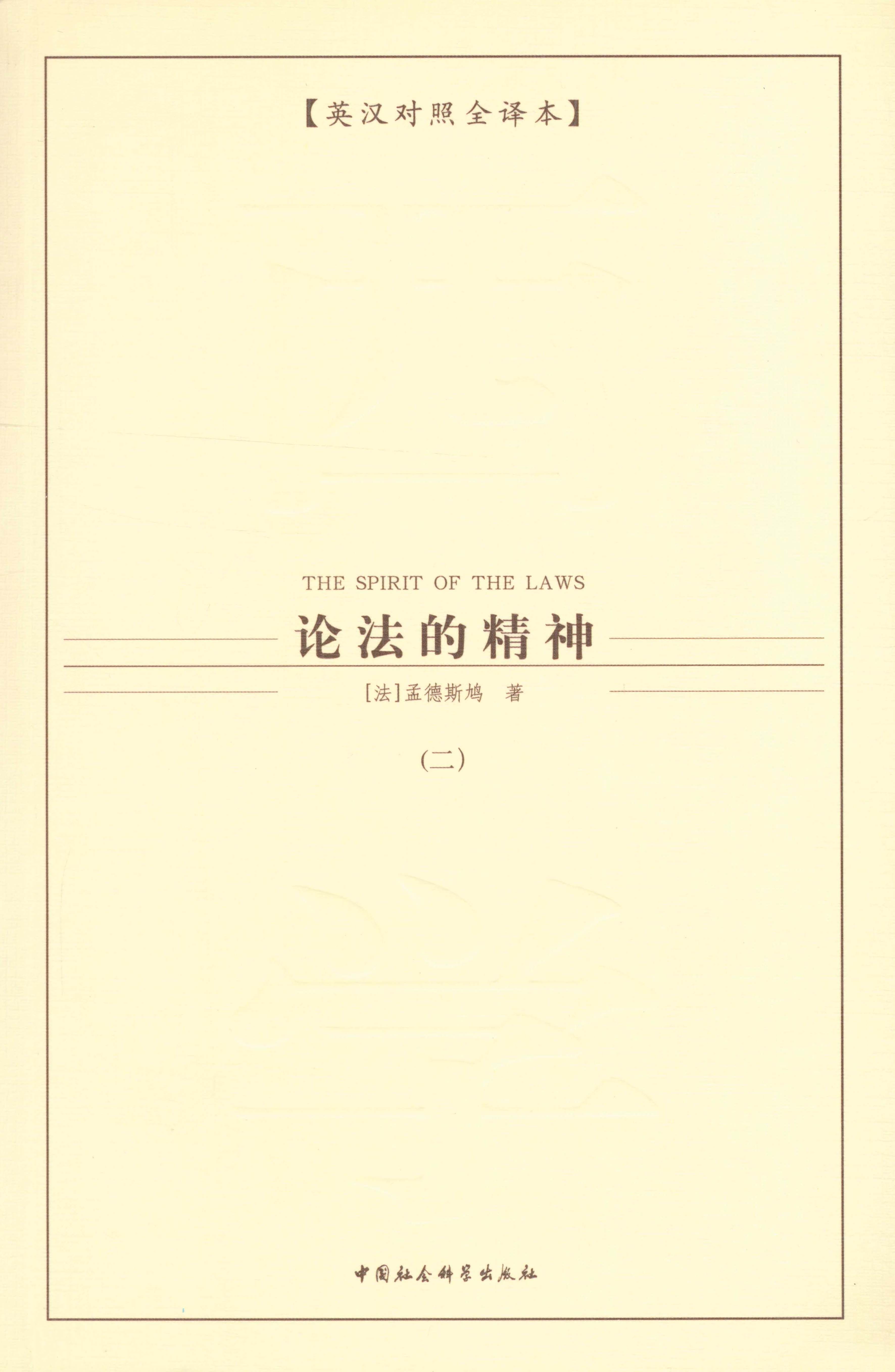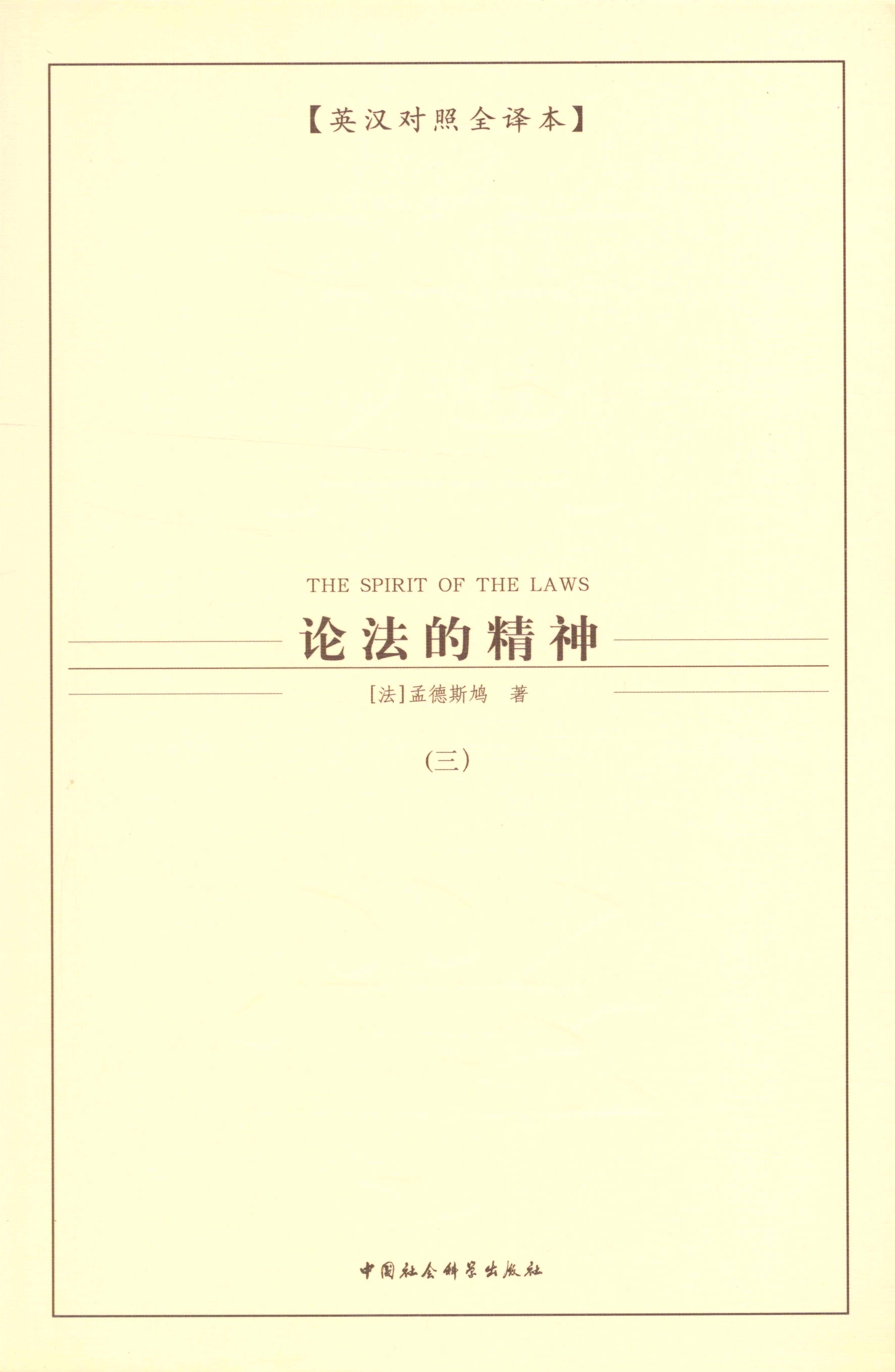内容简介
作者简介
目录
If,among the infinite number of things in this book,there is any that,contrary to my expectations might give offense,at least there is none that has been put here with ill intent. By nature,I have not at all a censorious spirit. Plato thanked heaven that he was born in Socrates'time,and as for me,I am grateful that heaven had me born in the government in which I live and that it wanted me to obey those whom it had me love.I ask a favor that I fear will not be granted;it is that one not judge by a moment's reading the work of twenty years,that one approve or condemn the book as a whole and not some few sentences. If one wants to seek the design of the author,one can find it only in the design of the work.I began by examining men,and I believed that,amidst the infinite diversity of laws and mores,they were not led by their fancies alone.I have set down the principles,and I have seen particular cases conform to them as if by themselves,the histories of all nations being but their consequences,and each particular law connecting with another law or dependent on a more general one.When I turned to antiquity,I sought to capture its spirit in order not to consider as similar those cases with real differences or to overlook differences in those that appear similar.I did not draw my principles from my prejudices but from the nature of things.Many of the truths will make themselves felt here only when one sees the chain connecting them with others. The more one reflects on the details,the more one will feel the certainty of the principles. As for the details,I have not given them all,for who could say everything without being tedious?The sallies that seem to characterize present-day works will not be found here. As soon as matters are seen from a certain distance,such sallies vanish;they usually arise only because the mind attaches itself to a single point and forsakes all others.I do not write to censure that which is established in any country whatsoever. Each nation will find here the reasons for its maxims,and the consequence will naturally be drawn from them that changes can be proposed only by those who are born fortunate enough to fathom by a stroke of genius the whole of a state's constitution.It is not a matter of indifference that the people be enlightened. The prejudices of magistrates began as the prejudices of the nation. In a time of ignorance,one has no doubts even while doing the greatest evils;in an enlightened age,one trembles even while doing the greatest goods. One feels the old abuses and sees their correction,but one also sees the abuses of the correction itself. One lets an ill remain if one fears something worse;one lets a good remain if one is in doubt about a better. One looks at the parts only in order to judge the whole;one examines all the causes in order to see the results.If I could make it so that everyone had new reasons for loving his duties,his prince,his homeland and his laws and that each could better feel his happiness in his own country,government,and position. I would consider myself the happiest of mortals.If I could make it so that those who command increased their knowledge of what they should prescribe and that those who obey found a new pleasure in obeying,I would consider myself the happiest of mortals.I would consider myself the happiest of mortals if I could make it so that men were able to cure themselves of their prejudices. Here I call prejudices not what makes one unaware of certain things but what makes one unaware of oneself.By seeking to instruct men one can practice the general virtue that includes love of all. Man,that flexible being who adapts himself in society to the thoughts and impressions of others,is equally capable of knowing his own nature when it is shown to him,and of losing even the feeling of it when it is concealed from him.Many times I began this work and many times abandoned it;a thousand times I cast to the winds the pages I had written;“A sport to the winds.” [L.]. every day I felt my paternal hands drop;“Twice the paternal hand had fallen.” [L.]. I followed my object without forming a design;I knew neither rules nor exceptions;I found the truth only to lose it. But when I discovered my principles,all that I had sought came to me,and in the course of twenty years,I saw my work begin,grow,move ahead,and end.If this work meets with success,I shall owe much of it to the majesty of my subject;still,I do not believe that I have totally lacked genius. When I have seen what so many great men in France,England,and Germany have written before me,I have beenfilled with wonder,but I have not lost courage. “And I too am a painter,”“And I too am a painter”[I.]. have I said with Correggio.
全部显示∨
出版说明
AUTHOR'S FOREWORD
作者的几点说明
PREFACE
序言
PART Ⅰ
第一卷B00K 1 On laws In General
第一章 一般的法
BOOK 2 On Laws Deriving Directly From The Nature Of The Government
第二章 直接源于政体性质的法律
BOOK 3 On The Principles Of The Three Governments
第三章 三种政体的原则
BOOK 4 That The Laws Of Education Should Be Relative To The Principles Of The Government
第四章 教育的法律应当与政体原则相适应
BOOK 5 That The Laws Given By The Legislator Should Be Relative To The Principle Of The Government
第五章 立法应当与政体原则相适应
BOOK 6 Consequences Of The Principles Of The Various Governments In Relation To The Simplicity Of Civil And Criminal Laws,The Form Of Judgments,And The Establishment Of Penalties
第六章 不同政体原则形成的结果和民法、刑法的繁简、判决形式及量刑等的关系
BOOK 7 Consequences Of The Different Principles Of The Three Governments In Relation To Sumptuary Laws,Luxury,And The Condition Of Women
第七章 政体原则和节俭法律、奢侈及妇女身份的关系
BOOK 8 On The Corruption Of The Principles Of The Three Governments
第八章 三种政体原则的腐化
PART Ⅱ
第二卷BOOK 9 On The Laws In Their Relation With Defensive Force
第九章 法律与防御力量的关系
BOOK 10 On Laws In Their Relation With Offensive Force
第十章 法律与进攻力量的关系
BOOK 11 On The Laws That Form Political Liberty In Its Relation With The Constitution
第十一章 形成政治自由的法律和国体的关系
该书无电子版哦,想阅读点购买纸书吧,现在还在打折喔(⊙o⊙)




